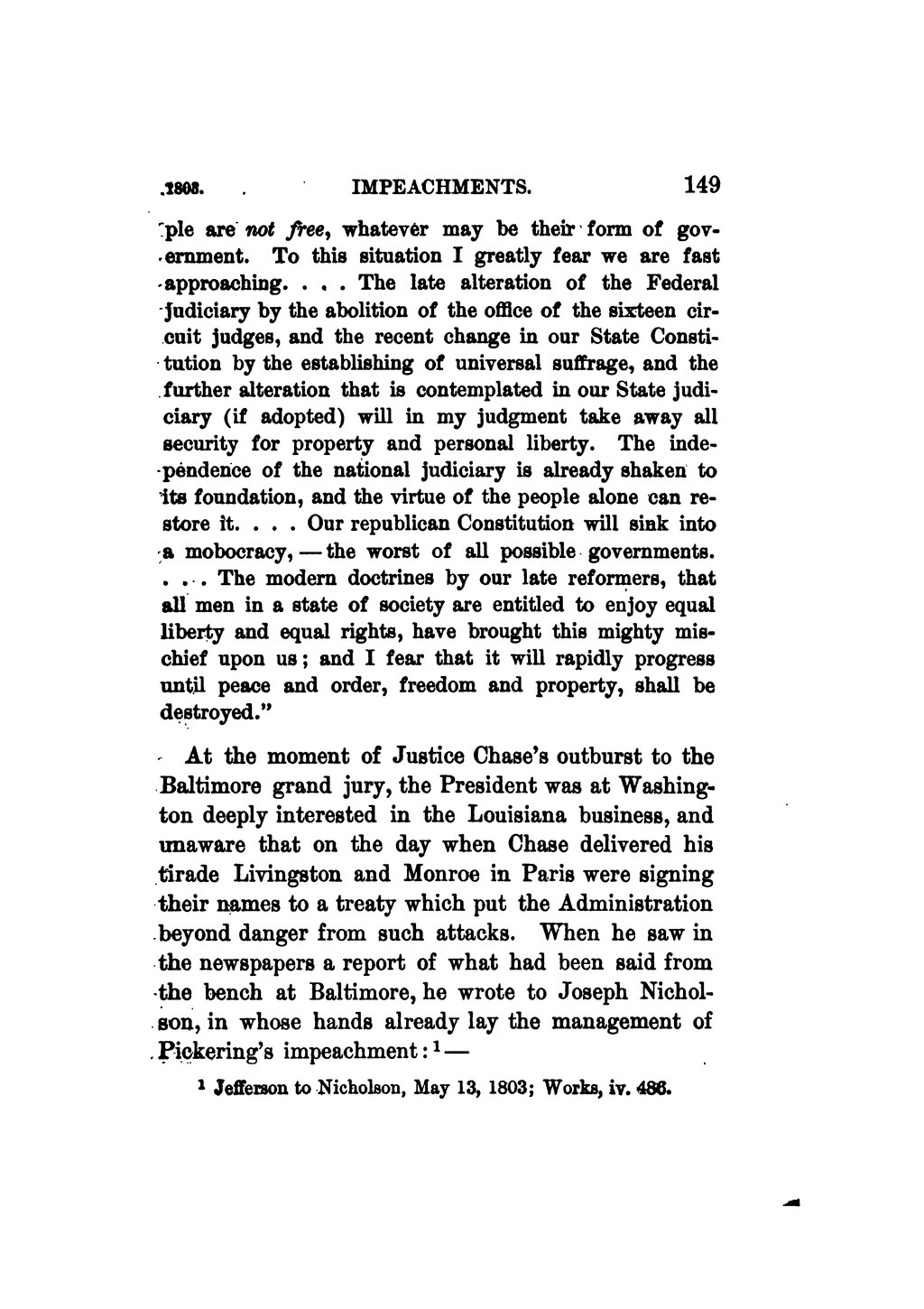are not free, whatever may be their form of government. To this situation I greatly fear we are fast approaching. . . . The late alteration of the Federal judiciary by the abolition of the office of the sixteen circuit judges, and the recent change in our State Constitution by the establishing of universal suffrage, and the further alteration that is contemplated in our State judiciary (if adopted) will in my judgment take away all security for property and personal liberty. The independence of the national judiciary is already shaken to its foundation, and the virtue of the people alone can restore it. . . . Our republican Constitution will sink into a mobocracy,—the worst of all possible governments. . . . The modern doctrines by our late reformers, that all men in a state of society are entitled to enjoy equal liberty and equal rights, have brought this mighty mischief upon us; and I fear that it will rapidly progress until peace and order, freedom and property, shall be destroyed."
At the moment of Justice Chase's outburst to the Baltimore grand jury, the President was at Washington deeply interested in the Louisiana business, and unaware that on the day when Chase delivered his tirade Livingston and Monroe in Paris were signing their names to a treaty which put the Administration beyond danger from such attacks. When he saw in the newspapers a report of what had been said from the bench at Baltimore, he wrote to Joseph Nicholson, in whose hands already lay the management of Pickering's impeachment:[1]—
- ↑ Jefferson to Nicholson, May 13, 1803; Works, iv. 486.
